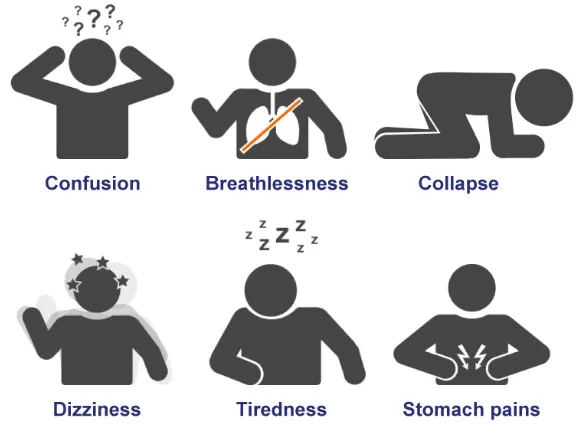The Surprising Health Benefits of Reducing Air Conditioning Use

Air conditioning has become an essential part of our daily lives, especially in regions with hot climates. It provides comfort and relief from heat, but there's a growing conversation about the impact of frequent air conditioning on our health. While it's easy to see how AC can improve comfort, dialing it down—or even avoiding it when possible—can bring unexpected health benefits. Here's why reducing your reliance on air conditioning might be a good move for your overall well-being.
1. Boosted Immune System
Excessive exposure to artificial cooling can weaken your immune system over time. A study published in Environmental Health Perspectives found that people who spend too much time in air-conditioned environments can have a lower resistance to illness. This is because air conditioning can make the air in your home or office dry, which may dry out the mucus membranes in your respiratory system, making it easier for viruses and bacteria to enter your body.
By dialing down the AC and allowing your body to adjust to natural temperatures, you can help boost your immune system, encouraging your body to work harder to regulate its temperature and fight off illness.
2. Improved Circulation and Cardiovascular Health
Air conditioning may be comfortable, but it often keeps your body from adapting to changes in temperature. When your body is constantly exposed to a cool environment, it doesn't get the chance to naturally regulate itself in response to heat. This could potentially lead to poor circulation and weakened cardiovascular health.
By lowering the air conditioning, your body will be prompted to adjust to higher ambient temperatures, which can lead to better blood circulation. This helps strengthen the heart and improve cardiovascular function. Plus, regular exposure to natural temperature fluctuations can improve your body's ability to handle stress, a key factor in maintaining overall health.
3. Better Sleep Quality
Many people rely on air conditioning for a good night's sleep, but using it too frequently may actually disrupt your sleep patterns. AC units tend to dry out the air, which can lead to dehydration, skin irritation, and respiratory issues, all of which can interfere with sleep quality. Furthermore, the noise from air conditioners may disrupt deeper sleep cycles.
Reducing the use of air conditioning and allowing your body to acclimate to the temperature in your room can improve your sleep quality. Studies have shown that people who sleep in a naturally cooler environment, without the reliance on AC, tend to have deeper, more restful sleep.
4. Increased Hydration Levels
Air conditioning can lower the humidity in the air, causing your skin to dry out and your body to lose moisture faster. This can lead to dehydration, which affects everything from energy levels to skin health. When you turn off the AC and allow your body to adjust to ambient temperature, it can retain moisture more effectively. The natural humidity in the air helps keep your skin hydrated and supports better overall bodily functions.
5. Reduced Risk of Respiratory Issues
AC units often circulate dust, mold, and other allergens, which can exacerbate respiratory conditions such as asthma and allergies. The cold, dry air can also make it more difficult to breathe, especially for those with existing lung conditions.
By minimizing your use of air conditioning, you allow the air in your home to be less dry and potentially less polluted. Ventilating your home naturally by opening windows or using fans can help improve air quality and reduce the risk of respiratory issues.
6. Enhanced Mental Clarity and Focus
While cool air might feel comfortable in the short term, excessive air conditioning can cause fatigue, headaches, and difficulty concentrating. Studies have shown that excessive use of air conditioning can negatively impact cognitive performance.
By reducing the reliance on air conditioning, you can naturally increase blood flow and improve alertness, focus, and mental clarity. As your body adapts to the environment, you may find you have more energy and better focus throughout the day.
Comparison Table: Health Benefits of Reducing Air Conditioning Use
<table style="width:100%; border: 1px solid #ddd;">
<tr style="background-color: #f2f2f2;">
<th>Health Benefit</th>
<th>Explanation</th>
<th>Impact of AC Use</th>
<th>Recommendation</th>
</tr>
<tr>
<td>Boosted Immune System</td>
<td>Strengthens the immune system by reducing the chance of viral or bacterial infection.</td>
<td>Dry, cool air weakens mucus membranes and lowers immune resistance.</td>
<td>Reduce reliance on AC, and allow natural body regulation to take place.</td>
</tr>
<tr>
<td>Improved Circulation</td>
<td>Improves blood flow and strengthens the heart.</td>
<td>Constant cool environments may limit circulation and cardiovascular adaptability.</td>
<td>Lower the AC to allow your body to adjust to varying temperatures.</td>
</tr>
<tr>
<td>Better Sleep Quality</td>
<td>Helps with deeper, uninterrupted sleep by reducing dryness and discomfort.</td>
<td>AC can disrupt sleep through dehydration, noise, and dryness.</td>
<td>Try sleeping in a naturally cool room without AC for better rest.</td>
</tr>
<tr>
<td>Increased Hydration</td>
<td>Helps your body retain moisture and prevents dehydration.</td>
<td>Dry air from AC can lead to skin dryness and increased dehydration.</td>
<td>Turn down AC and use a humidifier to maintain healthy moisture levels in the air.</td>
</tr>
<tr>
<td>Reduced Respiratory Issues</td>
<td>Improves air quality and reduces the risk of asthma and allergies.</td>
<td>AC units circulate dust, mold, and other allergens that can trigger respiratory problems.</td>
<td>Reduce AC use and ensure proper ventilation or air purification in your space.</td>
</tr>
<tr>
<td>Enhanced Mental Clarity</td>
<td>Promotes better cognitive function and focus.</td>
<td>Excessive use of AC can cause fatigue and headaches, reducing mental clarity.</td>
<td>Limit AC use to prevent fatigue and encourage mental sharpness.</td>
</tr>
</table>
Conclusion
While air conditioning certainly has its perks, dialing it down or even turning it off occasionally offers a range of health benefits. By allowing your body to adjust to the natural temperature of your environment, you can improve circulation, enhance sleep quality, boost hydration, and reduce the risk of respiratory issues. For a healthier and more balanced lifestyle, consider reducing your reliance on air conditioning when possible.
Recommended Websites and Companies:
1 American Lung Association - https://www.lung.org/
2 National Sleep Foundation - https://www.sleepfoundation.org/
3 Mayo Clinic - https://www.mayoclinic.org/
4 Environmental Protection Agency (EPA) - https://www.epa.gov/
5 Healthline - https://www.healthline.com/
6 WebMD - https://www.webmd.com/
7 The National Institute for Occupational Safety and Health (NIOSH) - https://www.cdc.gov/niosh/
8 American Heart Association - https://www.heart.org/
9 The Sleep Judge - https://www.thesleepjudge.com/
10 Health.com - https://www.health.com/






